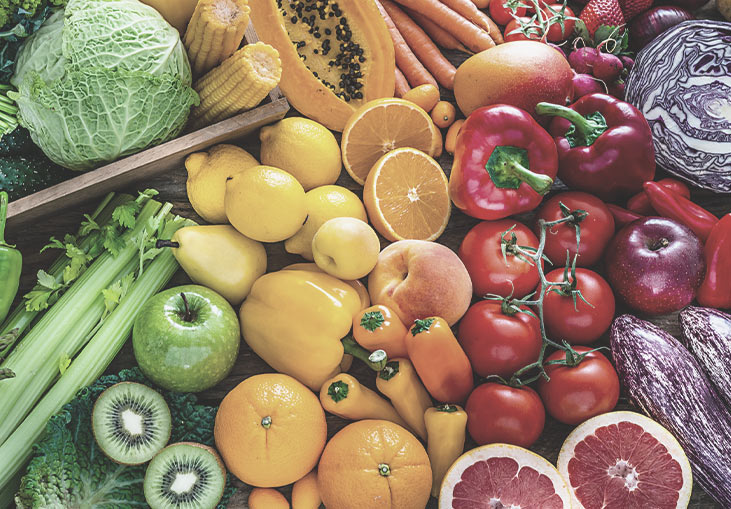
This post is a section of our report, A Leader’s Guide to Well Being. For a copy of the whole report, email info@sierraleadership.com.
Fueled by coffee, many leaders start working with little or no breakfast. They grab something fast for lunch, then gulp more coffee or high-carb snacks for an energy boost in the afternoon. Dinner may be the healthiest meal, but the day’s stress can lead to evening snacking, and alcohol, which erodes sleep quality. Tiredness, in turn, makes it harder to make healthy eating choices the next day.
Sound familiar?
Good food is essential for good leadership. It boosts your emotions, and is tied to improved cognitive function and workplace performance, in addition to health and longevity. If that’s not motivating enough, consider:
- 90% of our $3.5T national health care bill is for chronic diseases, many of which are nutrition-related
- According to the CDC, fewer than 1 in 10 US adults eat enough fruits and vegetables
- Heart disease, also tied to nutrition, causes a quarter of all deaths
Adopting a peak-performance diet
Harvard Medical School’s Healthy Eating plate provides a roadmap to the ideal diet for busy executives. It represents their suggested overall food intake—not for a given meal, but during the course of a whole day.
Of note:
- Fully half is fruits and vegetables, with an emphasis on vegetables
- A quarter is whole grains
- The remainder consists of healthy proteins, like fish, beans, nuts, seeds, poultry and eggs
- High-fat meats and processed or cured meats should be avoided; red meat and cheese should be limited
Other broad guidelines include sticking with whole foods as much as possible (those that most closely resemble foods in their natural, unprocessed state), avoiding chemical additives, and balancing calories to avoid excess weight.
How to eat better
For most of us, knowing what to eat isn’t the issue. The real challenge is actually eating those things. Here are some tips:
Plan ahead. Making eating decisions when hungry is a bad strategy; it’s our lowest point in energy and self-control. The solution? Plan ahead. We are much better at controlling ourselves in the future than in the present moment. If you already spend time planning your day, add a moment to think about food.
Remove temptations. A study by Google suggests that ease of access drives snacking behavior. So don’t keep unhealthy foods on hand, or at least put them out of sight. Keep healthy options easily available.
Modify the food culture. Workplace culture encourages snacking, whether it’s homemade treats or chips in the breakroom. Not all snacking is bad though. More frequent small meals and snacks encourage a more consistent energy level. Just be sure your snacks are healthy, like nuts, vegetables and fruit.
Our favorite tips
- Print out the Healthy Eating Plate and post it in your kitchen
- Eat vegetables at every meal, including breakfast
- Be intentional about food shopping–half your cart should be fresh produce
- Keep a bottle of water in front of you all day. You’ll drink more and dull your appetite
Our best resources
- Harvard Medical School Guide to Healthy Eating (Harvard Health Publishing)
- What You Eat Affects Your Productivity (Ron Friedman, HBR)
- World Health Organization–Healthy Diet
Other sources
- Ensure you get the right nutrition when you’re traveling for business with advice from preparation and navigating hotel buffets to useful apps and tackling tiredness (Aetna)
- How Google Optimized Healthy Office Snacks
Manage Your Energy, Not Your Time (Tony Schwartz and Catherine McCarthy, HBR)